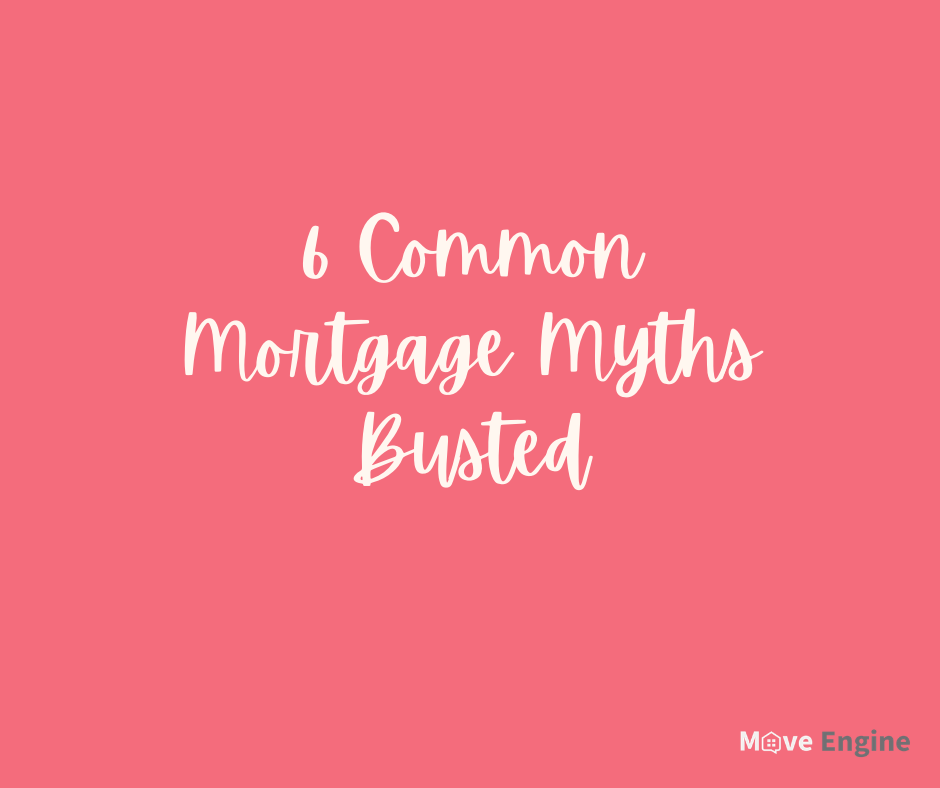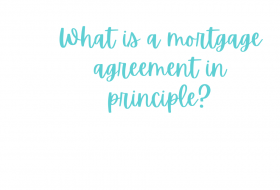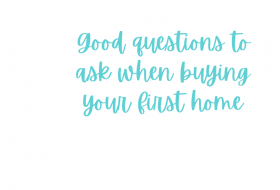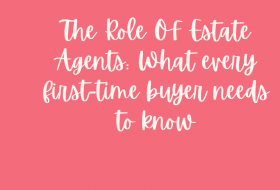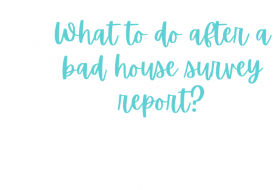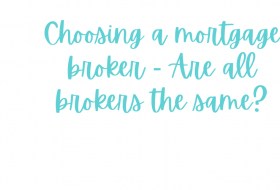At times learning about mortgages can seem complicated and confusing.
There’s a lot of information out there for first-time buyers, and not all of it’s strictly true.
We know how hard it can be to sort the fact from the fiction, so here’s the truth about six common mortgage myths.
1. You’ve got a bad credit rating, so you can’t get a mortgage
It might be harder to get a mortgage if you have a poor credit rating, but it’s not impossible.
We know having a low credit score can be down to simple things like missing a payment for a bill when you didn’t really understand how important it is to pay on time.
That’s why there are brokers and lenders that specialise in mortgages for people with credit issues.
A poor credit history doesn’t automatically mean you can’t get on the property ladder. It’s definitely worth having a chat with a specialist broker to see how they can help you.
2. You’re self-employed, so you can’t get a mortgage
If you’re self-employed, getting a mortgage can be more challenging, but it really depends on your circumstances, for example how long you’ve been self-employed or how up to date your accounts are, can make a difference.
Luckily, there are a lot of lenders and brokers who are set up to deal with self-employed people and take the time to get to know your circumstances.
Speaking to somebody to confirm where you stand will give you a much clearer picture on what you need to do to qualify.
And if you don’t qualify yet, they can let you know what you need to do to get that mortgage you want.
3. You have to get a mortgage with your current bank
Having banked with the same bank for many years it makes sense that people sometimes turn to them first for a mortgage.
However, thinking that it’s better to go through your bank because they know you is a myth.
All lenders will check your bank statements and credit history.
The decision often comes down to the numbers and your circumstances sadly, rather than any ‘customer loyalty’.
In fact, we always recommend that you shop around as it could cost you thousands of pounds more by sticking with what you know.
This is because most banks will only offer you their own products and services, when there are actually 1000’s of mortgage products out there to choose from.
4. A lower interest rate means a cheaper mortgage
It’s easy to think that a low-interest rate means you’ll pay less. We wish it was this straightforward, but many things impact your monthly mortgage repayments and how expensive your mortgage is overall.
You need to factor in mortgage fees and the length of your mortgage term to work out the total cost before comparing.
Also, things like how much you need to borrow, the size of your deposit and if you choose to make overpayments, can affect how much you’ll pay for your mortgage overall.
Rather than just going for the lowest interest rate, take the time to work out the true cost of a mortgage or ask your broker to do it for you, so you can make the best decision for you.
5. You need to find a property before you look at mortgages
Although you technically don’t apply for a mortgage until you want to buy a house, there’s not much point looking at properties if you don’t know what you can afford.
Not only are you wasting your own time, but the estate agents and property sellers might be reluctant to show you around until they know you have your finances sorted.
Getting mortgage advice at the start of your property journey means you will know what you can afford, saving you time in the long run.
You can also get a ‘mortgage agreement in principle’ from your lender, which is a document that states that ‘in principle’ they will lend you the money. Having one of these can make it easier to get an offer accepted on a property.
Imagine if you found a property you love and then having to start the mortgage application process from scratch.
You might find out you can’t afford it after all, or you could lose the property to another buyer who already has their mortgage broker in place, so it is worth getting this sorted before you start house hunting.
6. You can’t speak to more than one mortgage adviser
We speak to lots of buyers who worry that it will negatively affect their credit rating if they talk to more than one mortgage adviser.
Most brokers will only talk to you at this early stage, so it’s not a problem.
The issue will only arise if you apply for a ‘mortgage agreement in principle‘ through each of the brokers AND if the lenders choose to do a ‘hard search’. Be careful when you go to the next stage of still using multiple brokers.
Top tip: If you are talking to more than one broker, it’s a good idea to be honest about it!
Once they know, they should work harder to get your business and avoid tripping over each other. Plus, you can ask them to choose ‘soft search’ lenders only or choose to only use one broker to apply for your decision in principle.
We know how important it is to be sure you are getting the best advice from an adviser you trust, and that might not be the first one you meet, so be confident to shop around.
Summary
There you go, six common mortgage myths busted!
Hopefully, you’re now ready to get out there and start looking into things without worrying that you’re going to make a mistake that could mess up your chances of securing your dream home.
Follow the tips above and you should stand a much better chance of making it a success.
Need help to figure out if you are ready to talk to a mortgage adviser? Discover how our mortgage adviser matching service for first-time buyers can help.


